
Softr has gained widespread recognition for making no-code development accessible to everyone, from entrepreneurs launching MVPs to businesses setting up client portals and internal tools. However, no single platform fits every use case. As your needs evolve, you might find yourself searching for Softr alternatives that offer greater flexibility, deeper integrations, or more control over the look and functionality of your web applications.
Choosing the right no-code platform depends on multiple factors—do you need a solution with more automation features? A tool that integrates seamlessly with your existing software stack? Or perhaps something with stronger design capabilities? In this guide, we explore a range of Softr alternatives, breaking down their key features, pricing, and best use cases to help you make the right decision. Whether you’re building a marketplace, an internal tool, or a custom web app, we’ll help you navigate the options and find the best fit for your needs.
What is Softr?
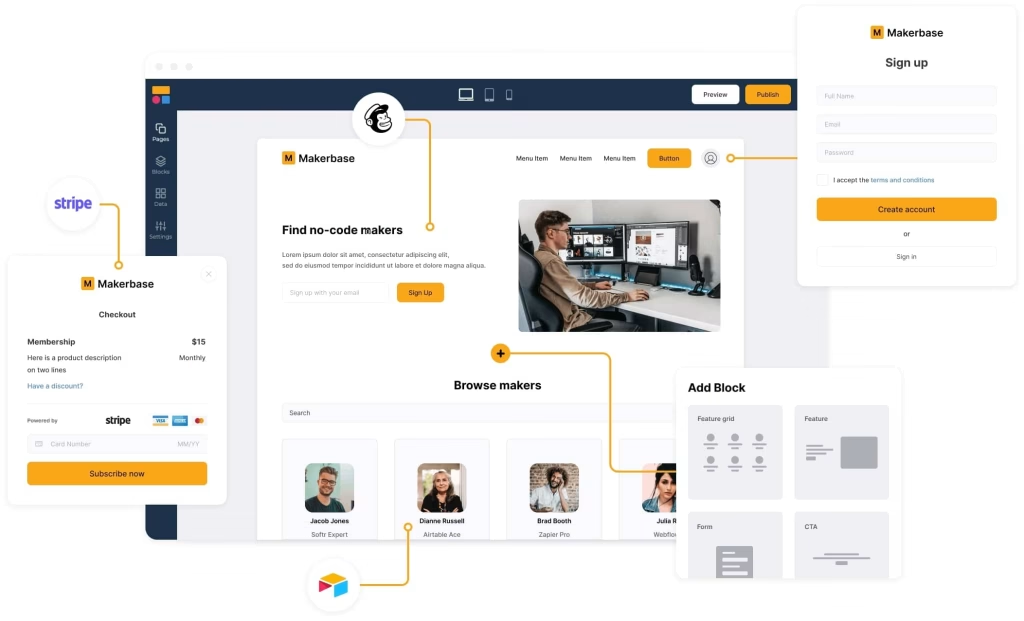
Softr is a user-friendly no-code platform that helps people build websites, portals, and internal tools without writing any code. Whether you’re creating a client dashboard, a membership site, or a business application, Softr makes it easy with its drag-and-drop interface and seamless integration with Airtable and Google Sheets.
Why People Love Softr:
- Ready-made templates for various use cases like job boards, directories, and marketplaces.
- Simple database connection using Airtable or Google Sheets.
- Built-in membership and login features to control user access.
- Brand customization with white-labeling and custom domains.
- Automate workflows with Zapier, Make, and other integrations.
Softr: The Good and the Bad
What’s great about Softr?
- Super easy to use – No coding required, just drag and drop.
- Great for data-driven apps – Works with Airtable and Google Sheets.
- Ready-to-go templates – Quickly build portals, directories, and dashboards.
- Membership sites made easy – Add login and restricted content features.
- Custom branding options – Use your own domain and white-label your app.
- Integrates with automation tools – Connects to Zapier, Make, and more.
Where Softr falls short:
- Not fully customizable – Design flexibility is limited.
- Only supports Airtable as a database – Not ideal if you need other data sources.
- Struggles with large projects – Not the best option for complex apps.
- Lacks deep automation features – Some advanced no-code tools offer more flexibility.
If you’re hitting limitations with Softr, don’t worry—there are powerful Softr alternatives that might suit your needs better.
Who Should Use Softr?
Softr is perfect for entrepreneurs, solo creators, and small teams who need to quickly build functional web apps without technical skills.
Where Softr Falls Short:
- Customization is limited compared to traditional website builders.
- It relies on Airtable, which may not work for all business needs.
- Scaling complex applications can be challenging.
If you need more flexibility, scalability, or advanced features, there are Softr alternatives that might be a better fit for your project.
5 Best Alternatives to Softr in 2025
1. FuseBase
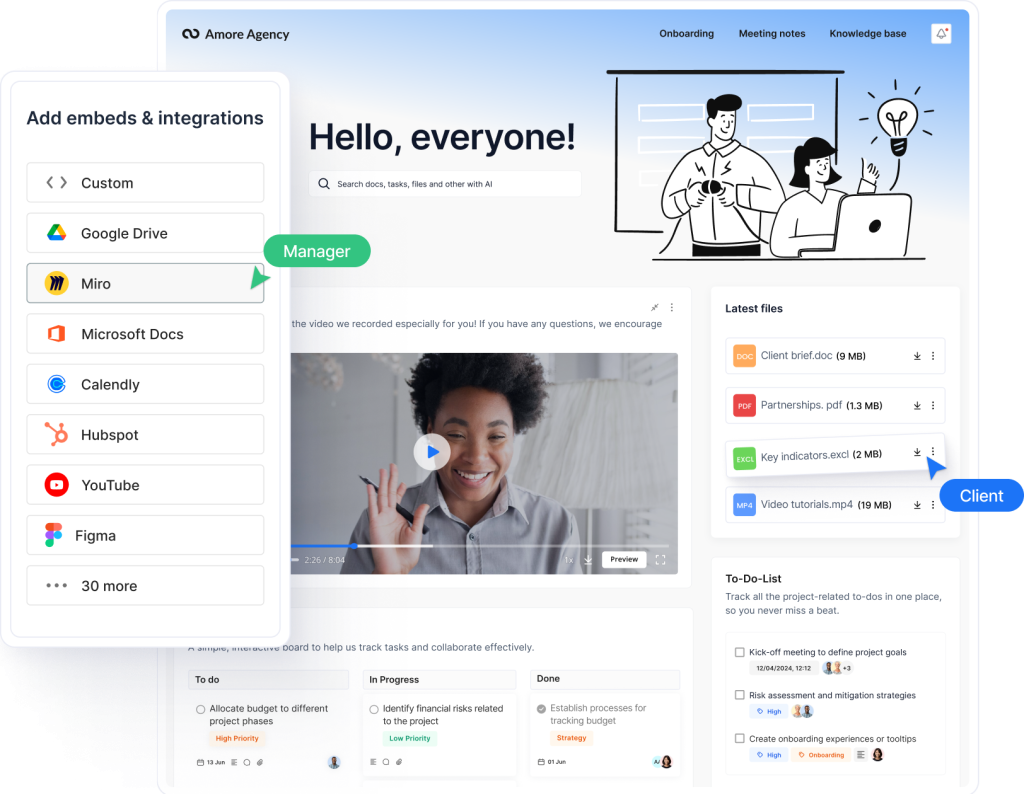
FuseBase is a next-generation no-code platform designed to help businesses create secure, customizable client portals with powerful AI-driven automation and workflow management. Unlike Softr, which offers limited flexibility, FuseBase provides full customization, advanced integrations, and enterprise-level security—making it the perfect solution for businesses that demand control, efficiency, and scalability.
What Sets FuseBase Apart?
- Flexible UI customization with HTML/CSS/JS.
- Smart automation powered by AI and workflow triggers.
- Granular access control to manage teams and clients securely.
- Seamless integrations with Google Drive, Slack, QuickBooks, and more.
- Full white-labeling for a branded client experience.
Pricing:
- Free Plan: Available at no cost.
- Essentials: $38 per month.
- Plus: $98 per month.
- Ultimate: $198 per month.
- Request Demo: Contact for a custom quote.
Best for:Enterprises, service-based businesses, and consulting firms needing an advanced, fully customizable client portal.
2. Adalo
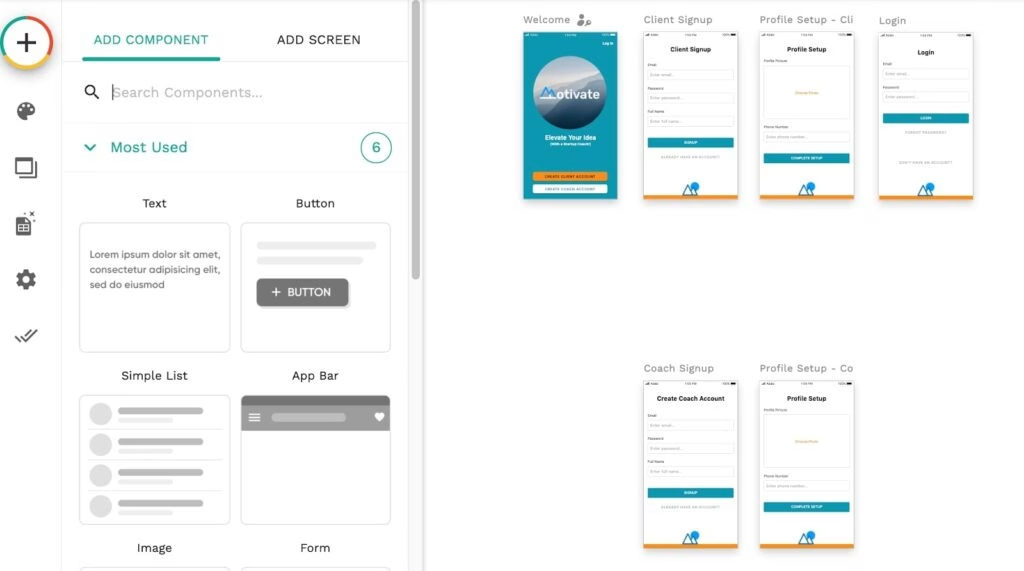
Adalo is a no-code platform that enables users to design and launch fully functional mobile and web applications.ith its intuitive drag-and-drop interface, Adalo allows for seamless integration of databases, user authentication, and custom workflows, making it ideal for creating interactive and dynamic apps.
Key Features:
- rag-and-drop interface for easy design.- atabase integration for dynamic content.- ser authentication and custom workflows.- ublishing capabilities for both web and mobile platforms.
Pricing:
- Free Plan: vailable with basic features.
- Pro Plan: 50 per month (billed annually) or $65 per month (billed monthly).
- Business Plan: 200 per month (billed annually) or $250 per month (billed monthly).
- Enterprise: ustom pricing available upon request.
3. Retool
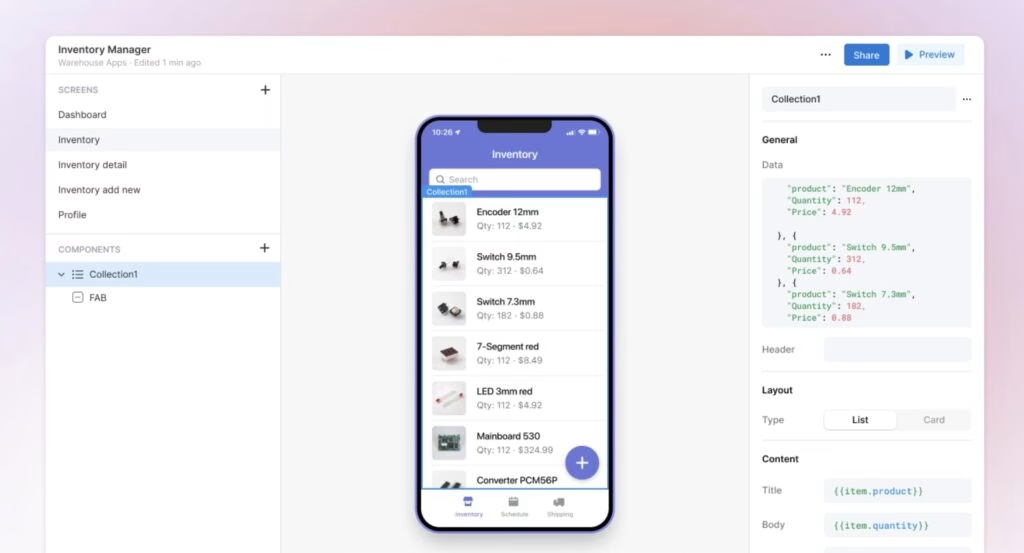
Retool is a platform that enables developers to build internal tools rapidly with a rich set of pre-built components.t connects to various data sources, allowing for the creation of complex applications that interact with databases, APIs, and other services.
Key Features:
- re-built components for quick assembly.- ntegration with numerous databases and APIs.- ustomizable with JavaScript for added flexibility.- ser permissions and access controls.
Pricing:
- Free Plan: vailable for individuals.
- Team: 10 per user per month.
- Business: 50 per user per month.
- Enterprise: ustom pricing available upon request.
4. Ycode
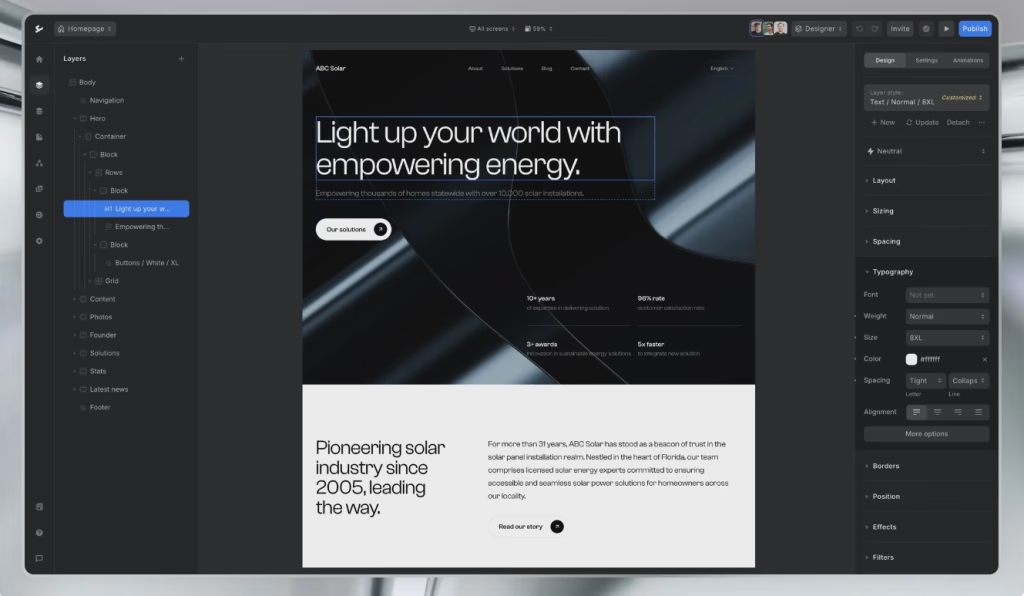
Ycode is a no-code web builder that allows users to create responsive web applications with a focus on design and functionality.t offers a visual interface for building layouts, managing data, and deploying applications without writing code.
Key Features:
- isual builder with drag-and-drop functionality.- atabase management for dynamic content.- ser authentication and access control.- ustom domains and SEO optimization.
Pricing:
- Free Plan: vailable with basic features.
- Pro: 32 per month (billed annually) or $39 per month (billed monthly).
- Business: 79 per month (billed annually) or $99 per month (billed monthly).
- Enterprise: ustom pricing available upon request. ach of these platforms offers unique strengths, so the best choice depends on your specific project requirements, desired features, and budget considerations.
5. Bubble – More Customization & Flexibility
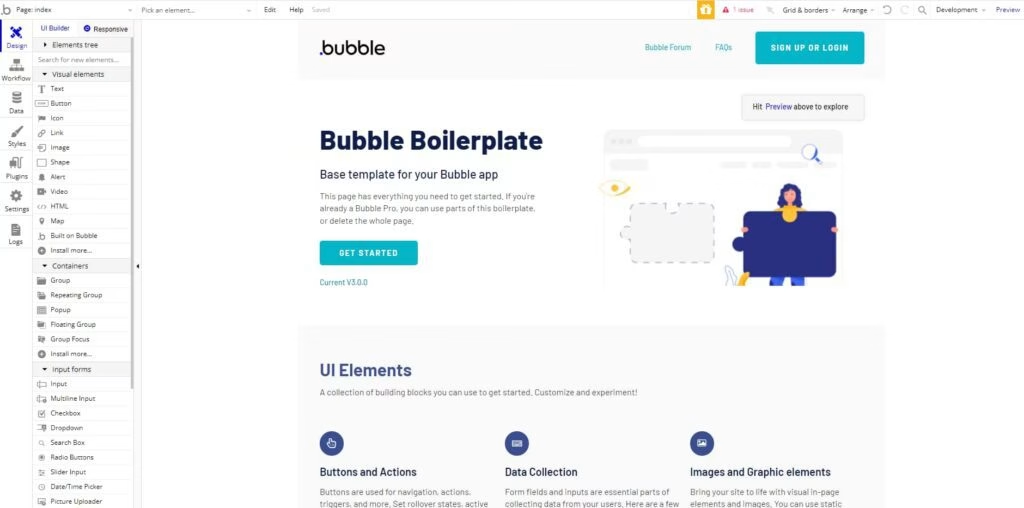
Bubble is a no-code development platform that offers more control over design and backend logic compared to Softr. While it has a steeper learning curve, Bubble is a great alternative for those who need highly customized web applications beyond the limitations of Softr’s template-based approach.
Best Features:
- Full UI customization with drag-and-drop + advanced logic.
- Powerful backend workflows with database flexibility.
- Scalable app development without Airtable dependency.
Pricing:
- Free Plan: Available with limited features.
- Personal: $29 per month (billed annually) or $32 per month (billed monthly).
- Professional: $129 per month (billed annually) or $134 per month (billed monthly).
- Production: $529 per month (billed annually) or $599 per month (billed monthly).
- Enterprise: Pricing available upon request; tailored for organizations requiring advanced features and support.
Bubble’s pricing is designed to accommodate various project needs, from personal projects to large-scale applications.
Best for:Startups and businesses that need complex, feature-rich web applications.
Conclusion: Finding the Best Softr Alternative for Your Needs
Softr is a strong no-code platform, but it’s not the perfect fit for every business. Whether you need greater customization, advanced automation, or stronger integrations, there are plenty of Softr alternatives that can better align with your specific goals.
If you’re looking for a highly customizable, AI-powered client portal solution, FuseBase is a top choice, offering deep integrations, workflow automation, and white-labeling. For businesses needing mobile-first applications, complex workflows, or greater design flexibility, platforms like Bubble, Retool, Ycode, and Adalo provide excellent alternatives.
Choosing the right no-code tool depends on your business’s unique needs, scalability requirements, and preferred level of customization. By exploring the options, you can find the best solution to build, automate, and grow your digital presence efficiently.
